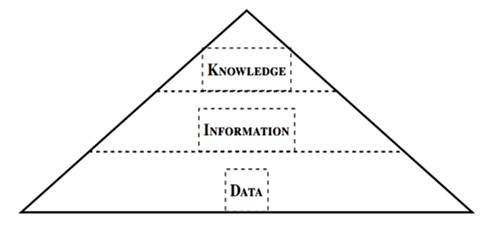A Comprehensive Literature Study
FEATURED PAPER
By Sulficker Ali Ismail
Stralsund University of Applied Sciences
Stralsund, Germany
Abstract
Knowledge is a vital asset for organizations, comparable to physical assets, yet it is often overlooked. Failing to reuse existing knowledge or recreating it results in wasted resources. Knowledge Management (KM) is the systematic and comprehensive practice of handling knowledge to improve outcomes and promote learning. This paper reviews the literature on Knowledge Management (KM), highlighting its role in organizational success and its integration with project management practices. The discussion covers the evolution of KM concepts, the significance of tacit and explicit knowledge, and the contribution of KM frameworks, models, systems, and technologies. It also examines organizational strategies, infrastructure, and process capabilities required for effective KM. The paper concludes by stressing the need for a structured KM approach to strengthen innovation, decision-making, and project outcomes.
Keywords: Knowledge Management, Tacit Knowledge, Explicit Knowledge, SECI Model, Project Management, Knowledge Sharing, Organizational Strategy, KM Frameworks, Knowledge Management Systems, Knowledge Lifecycle
Introduction
Knowledge is an important resource, supporting both individuals and organizations in making informed decisions and taking appropriate actions within a given context [1]. Knowledge exists at personal, group, and organizational levels, shaped by context and purpose, and includes insights, expertise, and understanding gained through education or experience. In organizations focused on innovation, knowledge is central to maintaining a competitive advantage [3]–[7].
J. Kelly, in his book Knowledge Nirvana, says knowledge differs from data and information, though the terms are sometimes used interchangeably [8].
Data consists of raw, unprocessed, and generally unfiltered information. It represents the basic building blocks that can be transformed into more meaningful forms. Information is the organized and refined version of data useful for analysis and decision-making.
Knowledge resides within individuals. It emerges when human experience and insight are applied to data and information, transforming them into actionable understanding.

Figure 1: Hierarch of Data, Information and Knowledge
Michael Polanyi, in Personal Knowledge (1958) and The Tacit Dimension (1966), argued that some knowledge is inherently difficult to express, emphasizing that “we can know more than we can tell”.
Knowledge within an organization falls into two main types: tacit and explicit. Tacit knowledge is personal, and experience based. It’s shaped by context and is often hard to articulate. It includes intuition, judgment, and skills gained over time. In contrast, explicit knowledge is structured and can be easily expressed, recorded, and shared with others. It encompasses data, procedures, manuals, and other forms of recorded information.
More…
To read entire paper, click here
How to cite this work: Ismail, S.A. (2025). Mapping the Landscape of Knowledge Management: A Comprehensive Literature Study, PM World Journal, Vol. XIV, Issue IX, September. Available online at https://pmworldlibrary.net/wp-content/uploads/2025/09/pmwj156-Sep2025-Ismail-mapping-landscape-of-knowledge-management.pdf
About the Author

Sulficker Ali Ismail
Stralsund, Germany
![]()
Sulficker Ali Ismail is a Master of Engineering (M. Eng.) student at Stralsund University of Applied Sciences in Germany, specializing in Renewable Energy and E-Mobility. He holds a Master of Technology (M.Tech.) degree in Production and Industrial Engineering from Mahatma Gandhi University, India (2015), and a Bachelor of Engineering (B.E.) degree in Mechanical Engineering from Anna University, India (2013).
Ali has 4+ years of professional experience in engineering and management roles across diverse industries. His recent experience includes working as a Project Management Intern at Continental AG, where he supported the PMO in project controlling and developing dashboards for KPI tracking. Prior to this, he worked as a Production Engineer, where he implemented Lean Manufacturing principles and improved operational efficiency. His earlier roles include Assistant Engineer, and Project Trainee at ISRO Satellite Centre, where he co-authored a research paper on spacecraft mechanism tolerances.
Ali can be contacted at sulficker@outlook.com










[…] term Personal Knowledge Management appeared in the late 1990s, and researchers have since been mapping the landscape of knowledge management to understand how individual practices connect with organizational systems. Researchers such as […]